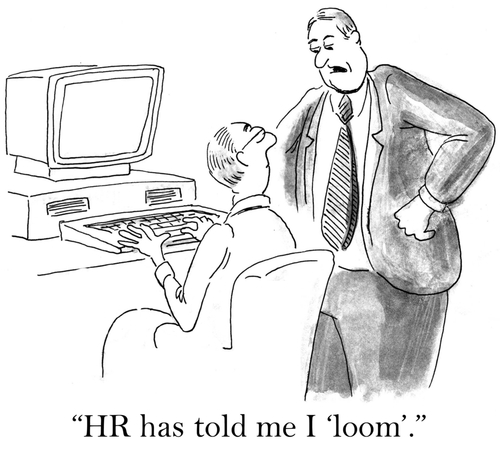
With everything that a CEO has to deal with on a daily basis, the idea that he or she is holding back their employees from excelling might seem like a punch to the gut.
Even the toughest bosses want their employees to be happy with their jobs. So taking a step back to examine this may be worthwhile.
Author Anese Cavanaugh recommends self-reflection in a story for inc.com: “It may be that you’re missing information, communication has not been clear, or you simply need to make sure you and your team are aligned. It may be that your ego is leading (after all, it’s important to be needed). Or it may just be a blind spot.”
Here are a few ways that different approaches and management styles may cause employees to feel like they’re being held back.
Trust issues.
It’s not uncommon to have doubts or fears about letting employees take larger roles on important projects. But there’s always the chance that, despite your best intentions, you’re letting them know of this doubt through your words or body language. As Cavanaugh writes, delegation is essential. “You don’t believe they can do it. And they feel it. Hand it over, let them run with it. Set whatever systems or conversations you need to set up so you can trust them and stay connected to what’s happening.”
Micromanaging issues.
When employees feel micromanaged, they may become disengaged, according to Kevin Dincher in a story for chiefoutsiders.com.
“They resent your role as manager and do not become proficient at doing their jobs, writes Dincher. “They lose the willingness to make sacrifices; they put in time but little else. Their apathy is contagious, affecting not only their own productivity but also that of their colleagues. Micromanaged employees become confused and angry, and they suddenly quit, going to work for another company.”
Information issues.
Knowing what information to share with employees and what to hold back can be a tricky scenario for a CEO. It’s important to find the line of what can be shared, and then make sure that you share it.
Karsten Strauss writes about this for Forbes, and quotes Leonard J. Glick, a management professor at Northeastern University in Boston. “Business leaders have a clearer perspective on the bigger picture than their employees do,” Strauss writes. “It pays to tell those under you what’s going on. ‘Things that managers take for common knowledge about how things are going or what challenges are down the road or what new products are coming … they often don’t take the time to share that with their employees,’ Glick said. Spreading the intel lets everyone in on the lay of the land, and at the same time strengthens the feeling among workers that they are an important part of the organization.”
Flexibility issues.
If you’re a “my way or the highway” type of leader, you may appear to have no flexibility at all. Showing an inability to bend may alienate your employees.
“You’re attached to your own way, and therefore give direction (disguised as feedback), or even worse, undermine or take over (disguised as helping) for anything they do that’s not on your plan,” Cavanaugh writes. “You may be missing gold here. If you’re leading your team right, and if you’ve hired the right people, they likely can do this all better than you.”

